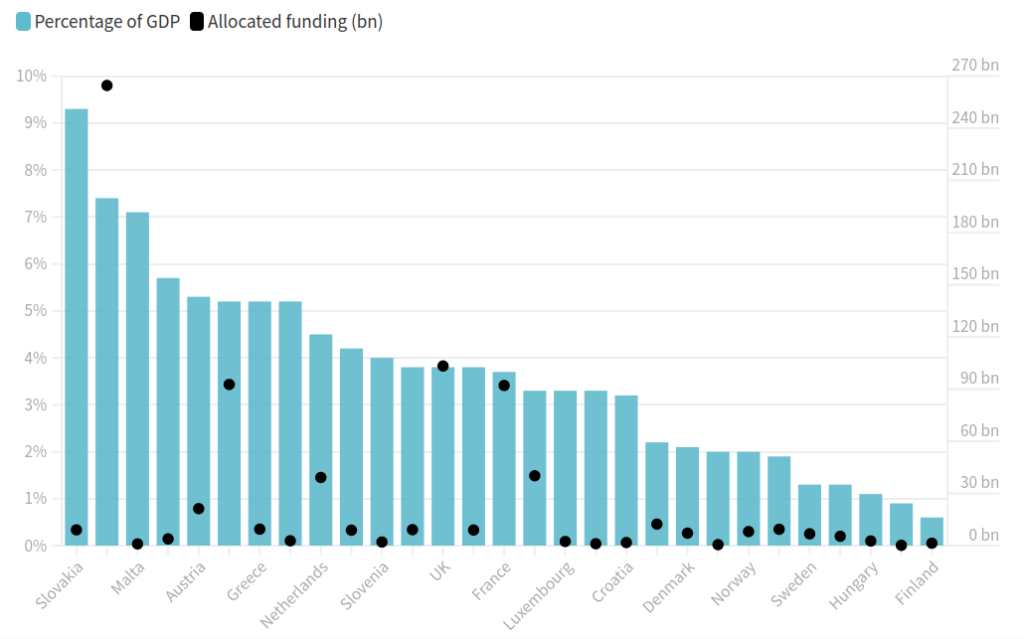European countries' bill to protect households and companies from rising energy costs has risen to almost 800 billion euros, researchers said on Monday (February 13th), calling them countries to be more targeted in their spending to address the energy crisis.

European countries Unions have already committed or earmarked €681 billion for energy crisis spending, with Britain earmarking €103 billion and Norway €8,1 billion as of September 2021, according to with the analysis of the Bruegel think-tank.
The €792 billion total compares with €706 billion in Bruegel's last assessment in November, as countries continue to grapple over the winter with the fallout from Russia cutting off gas supplies to Europe in 2022.
Germany topped the spending chart, spending nearly €270 billion – an amount that eclipsed all other countries. Britain, Italy and France were the next highest, although each spent less than €150 billion. Most EU states spent less.

On a per capita basis, Luxembourg, Denmark and Germany were the top spenders.
Spending earmarked by countries for the energy crisis is now on par with the EU's COVID-19 recovery fund, which reached €750 billion. The specific amount was agreed in 2020, in Brussels which undertook to transfer the common debt to the 27 member states of the bloc to deal with the pandemic.
Winter is not over, but Europe is preparing for the next one
Europe has overcome the energy crisis that followed it invasion of Russia in Ukraine so far, but businesses and households are already thinking about how they will get through next winter.
The update on energy spending comes as countries debate new EU proposals to further loosen rules on state aid for green technology projects.
Those plans have raised concerns in some EU capitals that encouraging more state aid will upset Europe's internal market. Germany is already facing criticism for the huge energy aid package it has received, which far exceeds what other EU states can afford.
The Bruegel think-tank said governments had focused most of their support on untargeted measures to limit the retail price consumers pay for energy, such as cuts in VAT on petrol or caps on retail prices.
The think-tank said this dynamic needs to change as states run out and cannot sustain such broad funding.
1/ Since Sep 2021, €792 billion has been allocated and earmarked (ie not necessarily spent!) across European countries to shield consumers from the rising energy costs. Of this, €681 billion in the EU and €103 billion in the UK. pic.twitter.com/2tH1NosnXY
—Simone Tagliapietra (@Tagliapietra_S) February 13, 2023
"Instead of price reduction measures that are de facto fossil fuel subsidies, governments should now promote more income support policies targeting the two lowest quintiles of the income distribution and strategic sectors of the economy," said researcher Giovanni Sgaravatti .





